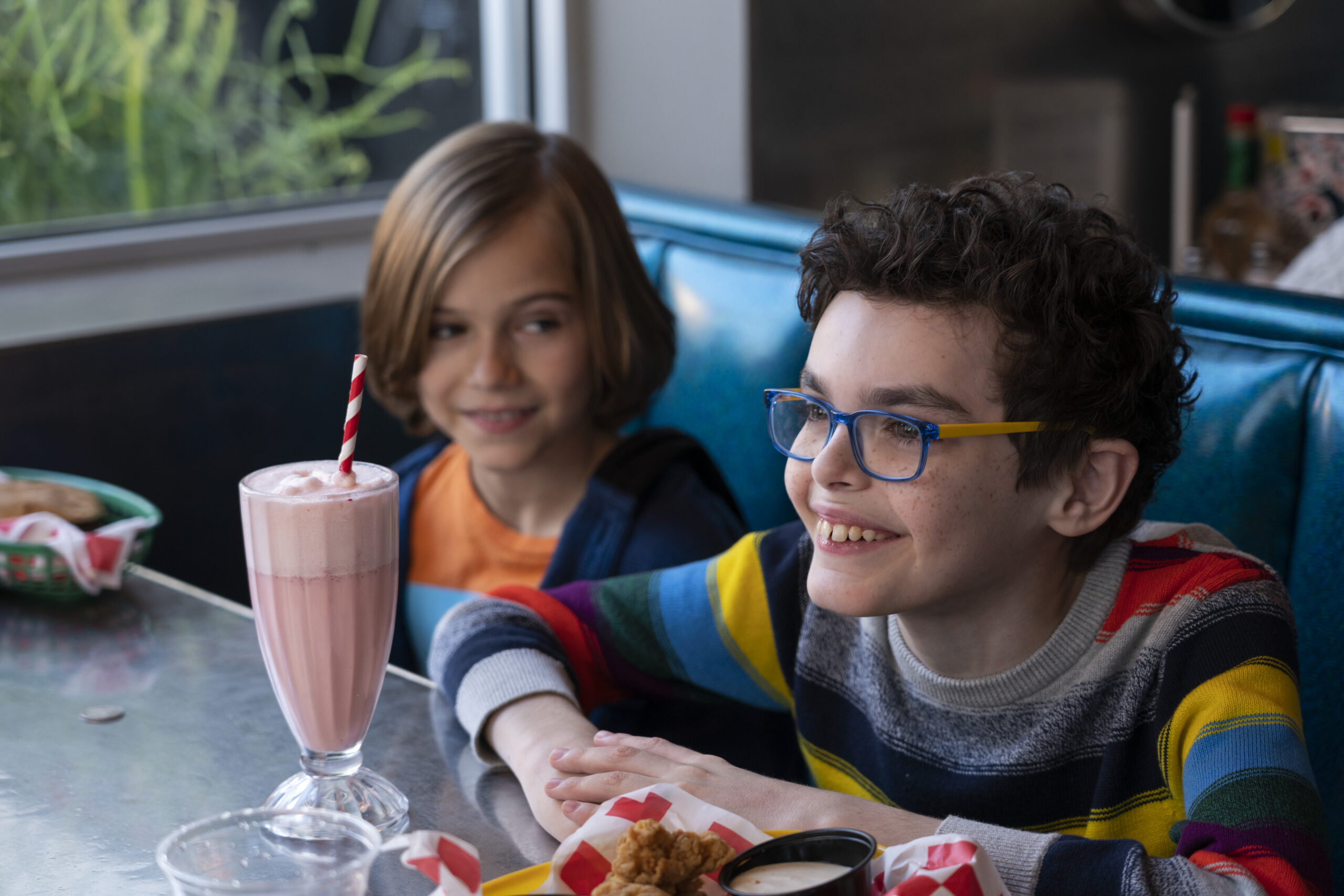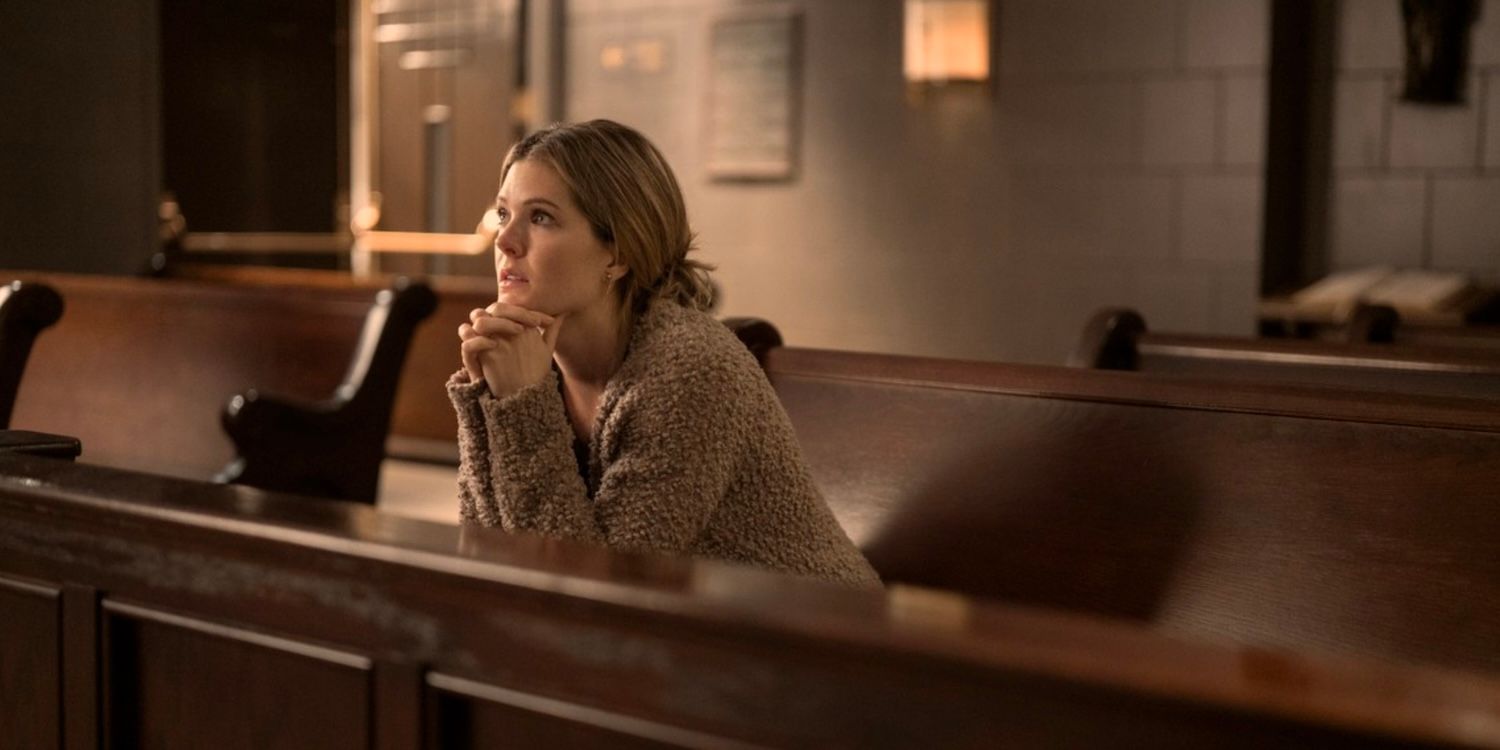Director: Jon Gunn
Writer: Jon Gunn
Stars: Zachary Levi, Jacob Laval, Meghann Fahy,
Synopsis: When Scott and Teresa LeRette learn that their son Austin is both autistic and has brittle bone disease, they initially worry for their son’s future. But with Scott’s growing faith and Austin’s incredible spirit, they become ‘unbreakable’, finding joy, gratitude, and courage even in the most trying times.
As distressing as it is that quote-unquote inspirational, faith-based dramas continue to get made on a churn-happy assembly line that is somehow only slightly less bankrupt than the films it produces, it’s relatively easy to understand why once you’ve suffered through one. So long as an audience member is unwilling to ask any questions of the substance being violently jammed down their esophageal tubes over two hours and change, these movies have the Power™ to make people feel better about themselves. Most of the time, those behind the one-way mirror supplying this force believe that they are doing so in a manner that their God would approve of, hence the “no questions asked” policy that many viewers believe should be the de facto rule when it comes to their adulation for such works. You might have noticed that most Sound of Freedom truthers were happy to take umbrage with any minor theatrical inconvenience that disrupted their screening of 2023’s most problematic (and, domestically, 10th-highest grossing) feature presentation, but questions about whether or not the film stokes the QAnon movement’s favorite conspiracy theories should not be levied so long as they reside in one of the 50 glorious United States of America. (Or are we at 51… have we commandeered Greenland yet?)

For these reasons – among other, similarly pitiful ones – the folks at Angel Studios and their brethren alike continue to creep in their petty, cinematic pace from day to day, with Kingdom Story Company being but one of the growing many. The Lionsgate offshoot behind Ordinary Angels (shockingly solid), the KJ Apa vehicle I Still Believe (uhhhhhh…), and Jesus Revolution (UHHHHHH…) were built on the ideology (and reliable profits) of films by the Erwin Brothers and, since 2019, have had their clasped hands in nine different projects, all of which manage to sound and look like the same sunny glint from the heavens that repeatedly takes on the most basic, rudimentary approach to personal growth. If ChatGPT has yet to develop a Biblical arm, it’s probably being programmed by someone in their ranks. Thoughts and prayers, as they say.
Case in point: Jon Gunn’s The Unbreakable Boy, though with this film, the top believers somehow stumbled even further into the depths of Hell by doubling down on their Zachary Levi stock. Just four short years after RFK Jr.’s could’ve-been running mate starred as Kurt Warner in Kingdom’s production of American Underdog, the odyssey of a grocery store shelf stocker who became a Hall of Fame quarterback, all thanks to the man above, Levi returns here as Scott, the man in need of a spiritual awakening. Will it come in the form of a relationship with Teresa (Meghann Fahy; innocent, methinks) that is rushed along by a surprise pregnancy after date number three? As a cause of that eventual birth, one that brings Austin – their autistic son who also has the same Osteogenesis imperfecta (“brittle bone” disease) as his mom, though hers is a mild case – into the world? The revelation that his heavy, midday-to-midnight drinking might represent a real problem?
It should come as no surprise that the answer to all of the above is “yes,” both because The Unbreakable Boy is based on the true story of the LeRette family, one to which it is ostensibly faithful, and because there’s no other direction for the film to go. Once Austin (Jacob Laval) is introduced, the film’s title is given a physical and supposedly emotional representation, but even his most compelling moments in this anecdote-based sketch of a character’s life feel like offramps deliberately implemented to provide Scott with a way through what the film believes to be an infinitely more complicated journey. To make matters worse, Gunn’s most concerted efforts to make what could have been the heartwarming tale of a theoretically-different kid’s discovery that it was never his job to fit in, but for others to accept him for who he is, seem designed to bolster audience satisfaction scores. Remember, as long as we end a movie feeling validated re: how we’re all good people, it doesn’t matter what the movie actually has to say, how it says it, or if it bothers going beyond the surface at all.

Every introduction of a new character aims to serve this same goal. Scott’s parents (Patricia Heaton and Todd Terry) only pop up to give Austin a less enthusiastic hug than they gave their other grandchild, Logan (Gavin Warren), or to reassure their son that his bad choices don’t define him. Teresa’s sister (Amy Acker) essentially does the same, reminding the former that Scott is nothing like their Dad; his drinking went on for years, she says, while Scott’s has only been a real problem for… well, about a decade, but still! The two men Scott can regularly confide in come in the forms of his lifelong imaginary friend-slash-conscience, Joe (Drew Powell) and their local church’s preacher (Peter Facinelli), whose bond with Scott grows as they discover they have much more in common than just the Higher Power they theoretically share.
Above all of its many detracting elements, The Unbreakable Boy can’t even be bothered to mine the right lessons from its painfully obvious set pieces. That is, if there are “right” takeaways to be had, given how thinly they’re all drawn. Attending, let alone speaking at an Alcoholics Anonymous meeting should be categorized as a step in the right direction for any human being who struggles with such a cunning, baffling, and powerful disease, but Gunn’s film treats each of Scott’s revelations in those settings like the aforementioned Warner probably felt each time he won his way to a Super Bowl. When Scott and Teresa fight for their son’s right to stay at the school that opted to direct the family to a care center more capable of aiding Austin’s special needs, it’s the teachers and students who are afforded an assembly to celebrate their hand in bringing him back, not his family nor the unbreakable boy himself. Even as the narrative crawls its way toward its inevitable, cloying conclusion that Austin was always going to be the one to fix his dad, not the other way around, it’s hard to buy any of it given the common knowledge that its star supports an administration that believes vaccines cause neurodivergence. One can only hope that Levi’s insistence on how it was less important to save his career than to vote the way he did actually has some real ramifications.

That prayer might make its way from moviegoer’s mouths to God’s ears, but if Kingdom-esque companies have anything to say about – and they are literally the ones who have something to say about it – it will only be a matter of time before his beliefs and those of others like him (looking at you, Caviezel) will be plastered across yet another poster and/or trailer urging us to open our hearts to love and acceptance. (At the moment, Kingdom Story has four films in various stages of production.) What’s ironic is that the studio has yet to open their own hearts to anything that isn’t already festering within the dingy cavern pumping blood, oxygen, and blindness to the brain. The Unbreakable Boy is no different, a shortsighted, ill-conceived document that proclaims to have seen the light while it only actually cares about banging the drum its makers have been recycling since they opened their doors. The shell is hollow; if only the noise it unfortunately continues to create wasn’t so loud.
The Unbreakable Boy will be available to rent on PVOD on April 4.





